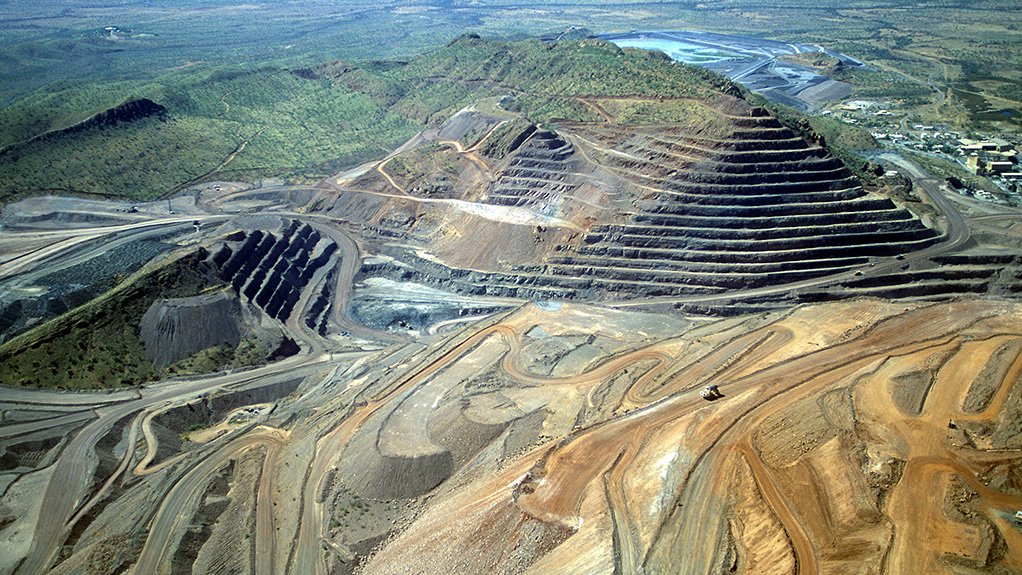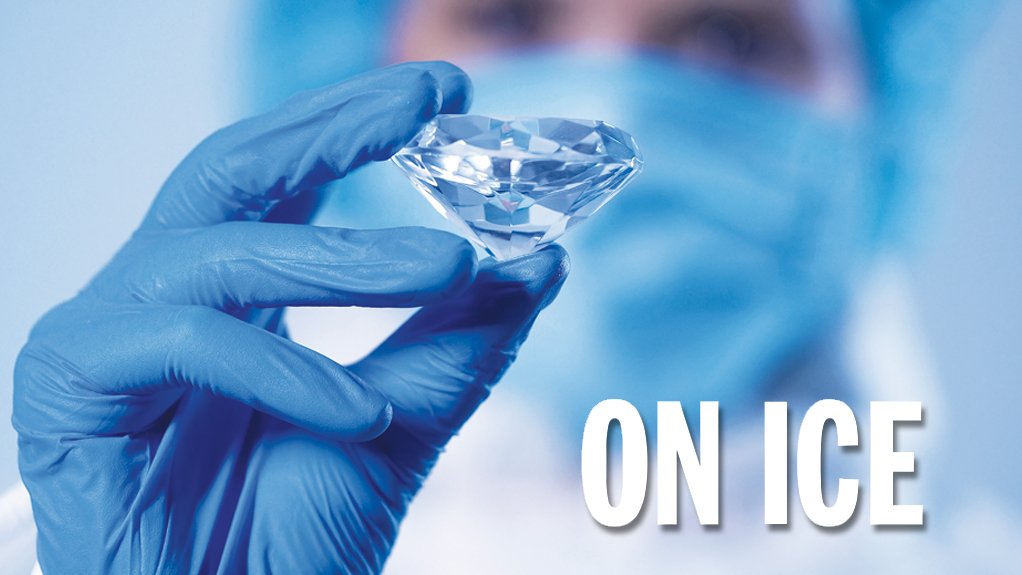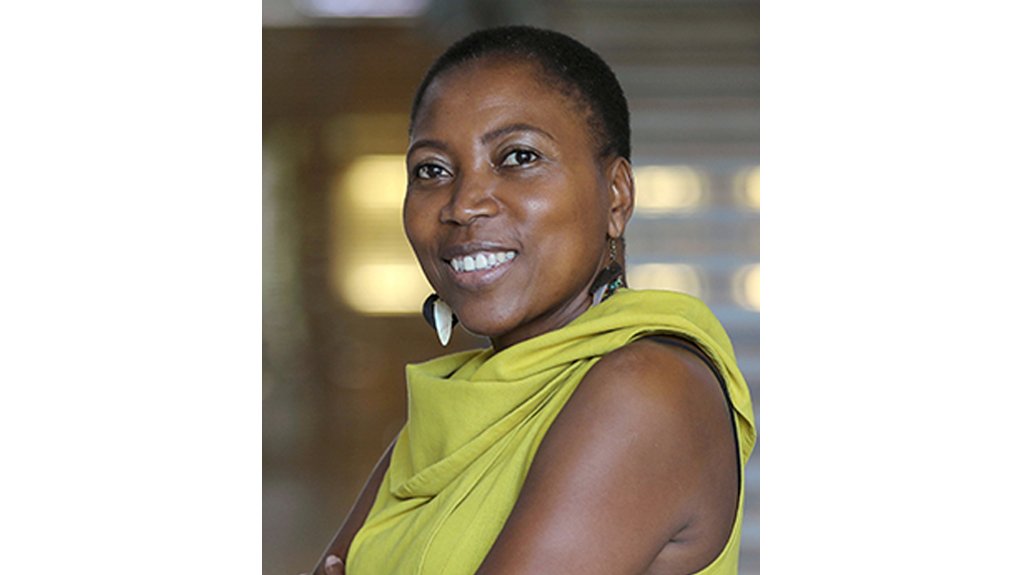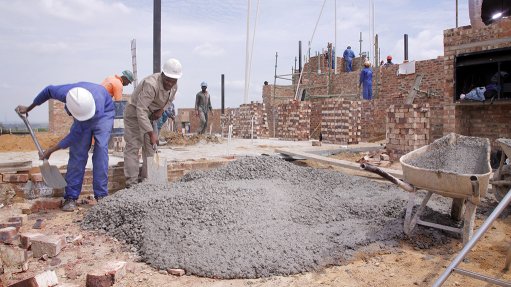Hard-hit diamond jewellery sector mulls postpandemic recovery strategies





SHOCK FACTOR From mining to retail, Covid-19 represents both a supply chain and a demand shock
KHOMOTSO RAMODIPA Consumers are now more socially aware and want to ensure that their diamonds are helping to develop a nation and are not associated with funding an oppressive regime
IRIS VAN DER VEKEN Consumers always expect trust when they buy a piece of jewellery to celebrate a significant moment in their lives
The unforeseen global health crisis triggered by the Covid-19 pandemic has had dire economic repercussions, to which South Africa is not immune.
Many analysts predict that the global economy will go into recession this year and will take at least a year to recover.
The pandemic has had a devastating impact on global markets and the diamond industry has not been spared, says South Africa-based diamond refining institute Kwame Diamonds director and COO Khomotso Ramodipa.
She adds that the luxury market, which includes the diamond jewellery market, has been “put on ice”, as the primary focus for many is survival and prioritising basic needs.
Consequently, the Responsible Jewellery Council (RJC) – a UK-headquartered leading standards organisation for the entire jewellery and watch supply chain – notes that this will affect gems and jewellery, which rely on disposable income, adding that the diamond industry’s resilience will be tested to its limits.
Amid the current lockdowns globally, the industry is primarily focusing on managing cash flow and ensuring survival, which includes safeguarding the wellbeing of its stakeholders, says RJC executive director Iris Van der Veken.
“We see that, from mining to retail, the virus represents both a supply chain shock – disruption as people cannot work – and a demand shock – [given] income plunges [and] economic uncertainty, businesses and families are in survival mode.”
Firstly, Van der Veken shares that, like any industry, the diamond jewellery industry’s recovery will need the support of bold and timely economic policies from governments around the world to mitigate the economic damage and help build confidence in the economy and focus on recovery.
“These measures are essential to protect people’s livelihoods. Governments and businesses will need to work more closely together to tackle this crisis as time is of the essence.”
This, she underlines, all depends on how the postpandemic environment will evolve and whether more waves of infection ensue and how intense these will be.
She also believes that the pandemic will lead to increasing demand for sustainability after the lockdowns have been lifted.
“This is a life-changing moment for any industry. The sustainability movement will gain further relevance in the postpandemic landscape,” highlights Van der Veken.
This is due to consumers watching with keen interest how companies are dealing with the pandemic and how they are protecting people and communities, she adds.
Further, it has become quite evident that people’s continued health is inextricably linked to the health of businesses.
“We are only as strong as our weakest link – if this was a platitude or cliché earlier, it is a fact now,” Van der Veken says, noting that there is a need to look at supply chains as interconnected economic and social webs where the most vulnerable need to be protected.
Therefore, the RJC believes that industry functioning will reset around greater collaboration, transformative partnerships and collective responsibility across all parts of the value chain.
Van der Veken advances that, in the wake of Covid-19, there will be an opportunity to create a healthier and more resilient society, which is all about turning purpose into action, which the council refers to as the Purpose-People Planet Economic Model.
Further, with the pandemic having caused great disruption and exposed weaknesses in many operations, she emphasises that diamond companies will need to rethink how they can shorten supply chains while ensuring that they are more transparent, socially conscious and environment friendly.
“The ripple effects of the crisis – such as the impact on mental health, the disproportionate effect on women and children, and the obviously nonuniform geographic toll – will become evident for businesses, especially industries with global supply chains. How we, as an industry, manage and mitigate this is up to us.”
Nevertheless, Ramodipa tells Engineering News & Mining Weekly that, although recovery will be slow in its initial phases, locally, the market should recover when all the players have found the right balance going forward.
She urges the industry to work together to manage the negative impact of Covid-19 on all levels of trade.
For instance, South African mining houses need to be mindful of how they supply rough diamonds to the midstream industry, and there has to be a delicate balance between supply and demand, she explains.
“Rough-diamond suppliers need a healthy manufacturing sector that, in turn, requires a healthy retail sector that can absorb its polished diamonds. The retailer, on the other hand, needs a consumer who is eager to buy.”
People have now found innovative ways of nurturing and maintaining relationships and, hopefully, she says, this will lead to new customers for when the pandemic is over.
Additionally, Ramodipa believes that when the world lays down the tracks towards a “new normal”, the diamond market will grow “dramatically” because diamonds – as an eternal symbol of love – will be highly sought after.
“The diamonds industry needs to demonstrate the beauty that we create and the great work we are doing to contribute towards nation building and development. We work in an industry of beauty and emotions where we connect hearts and minds. Consumers always expect trust when they buy a piece of jewellery to celebrate a significant moment in their lives,” underscores Van der Veken.
Early research shows that, after the pandemic, the consumer will prioritise trust and true purpose even more and will evaluate companies based on how they acted during and after the crisis, she tells Engineering News & Mining Weekly.
This, she believes, will propel the industry to become more resilient in the longer term.
Supply Chain Diversification
The emphasis on diversification, based on ethical diamond sourcing and supply chain traceability, reflects the market’s response to consumer demand, which is based on greater transparency and knowledge of where diamonds are mined, Ramodipa points out.
This is also a big focus of the RJC’s mission, which has a vested interest in the entire diamond supply chain, from mine to retail.
“Generally, Gen-X and Gen-Z want a company to take the lead on sustainability efforts. We have seen that they deeply care about aspects such as climate change, for example,” says Van der Veken.
These generations, she says, demand more from their digital and personalised shopping experiences and they want to understand the story behind the product. It is all about integrity and societal purpose. It is for this reason that she expects that the impact of Covid-19 will only accelerate this mindset among these generations.
Ramodipa asserts that there is no doubt that consumers are now more socially aware and want to ensure that their diamonds are helping to develop a nation and are not associated with funding an oppressive regime.
“[Diamonds being] the ultimate symbol of human emotions, one that has a history going back thousands of years, we all have a role to play in ensuring that every diamond is ethically sourced and that fundamental human rights are upheld in mining or processing,” she stresses.
In Van der Veken’s view, a truly sustainable supply chain is grounded in a shared responsibility and a social contract among the role-players involved in creating product responsibly.
“Supply chains are often complex, multitiered and interconnected, and, as the world evolves, what it means to be responsible and sustainable also evolves,” she avers.
The RJC follows an integrated approach to responsibility, recognising it as an ongoing journey of transformation. The council notes that different responsibilities –in terms of managing a well-oiled supply chain – must be demanded and governed, as well as accepted by the industry and its consumers. It is also fully aware that the interfaces between these components of the supply chain require a collective effort.
“For the diamond jewellery market to be truly sustainable, there are some values that are, or should be, entirely non-negotiable. These include a commitment to human rights, environment-friendly management practices, transparency, product integrity and a set of strong leadership business values,” says Van der Veken.
She also recognises that managing a supply chain is often a long journey, given the intricate nature of global supply chains.
Nevertheless, Van der Veken remains firm that the journey to a truly sustainable supply chain is a process of continual improvement and a collective effort by the industry.
“Diamonds are a source of good stories, and Kwame Diamonds – as a 100% black-owned and woman-managed company – wants to be at the forefront of getting out there to tell them through the South African lens,” Ramodipa enthuses.
Although the road to recovery is still very long and many challenges will come as a result of wanting to achieve sustainability for the diamonds industry, perseverance is key to that success, she avers.
That said, it is worth recalling the words of Welsh singer Shirley Bassey, who sang: “Diamonds are forever . . . Forever and ever”.
Comments
Press Office
Announcements
What's On
Subscribe to improve your user experience...
Option 1 (equivalent of R125 a month):
Receive a weekly copy of Creamer Media's Engineering News & Mining Weekly magazine
(print copy for those in South Africa and e-magazine for those outside of South Africa)
Receive daily email newsletters
Access to full search results
Access archive of magazine back copies
Access to Projects in Progress
Access to ONE Research Report of your choice in PDF format
Option 2 (equivalent of R375 a month):
All benefits from Option 1
PLUS
Access to Creamer Media's Research Channel Africa for ALL Research Reports, in PDF format, on various industrial and mining sectors
including Electricity; Water; Energy Transition; Hydrogen; Roads, Rail and Ports; Coal; Gold; Platinum; Battery Metals; etc.
Already a subscriber?
Forgotten your password?
Receive weekly copy of Creamer Media's Engineering News & Mining Weekly magazine (print copy for those in South Africa and e-magazine for those outside of South Africa)
➕
Recieve daily email newsletters
➕
Access to full search results
➕
Access archive of magazine back copies
➕
Access to Projects in Progress
➕
Access to ONE Research Report of your choice in PDF format
RESEARCH CHANNEL AFRICA
R4500 (equivalent of R375 a month)
SUBSCRIBEAll benefits from Option 1
➕
Access to Creamer Media's Research Channel Africa for ALL Research Reports on various industrial and mining sectors, in PDF format, including on:
Electricity
➕
Water
➕
Energy Transition
➕
Hydrogen
➕
Roads, Rail and Ports
➕
Coal
➕
Gold
➕
Platinum
➕
Battery Metals
➕
etc.
Receive all benefits from Option 1 or Option 2 delivered to numerous people at your company
➕
Multiple User names and Passwords for simultaneous log-ins
➕
Intranet integration access to all in your organisation






















